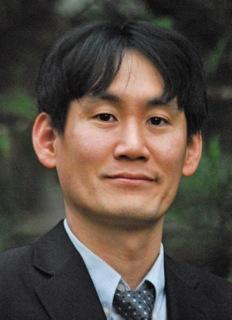Benefits of College Education
Economics Professor Explores the Benefits of a College Education
A college education benefits not only those receiving a higher education but also other members of society says economics professor Chong-Uk Kim who will present his findings at a Thursday, March 1 lecture at noon in Stevenson 2049 as part of the spring 2012 Economic Lecture Series.
Kim's paper - "Who Has to Pay for Their Education: Evidence from European College Education" - examines how tertiary education (college and beyond) in 18 European countries has effects that go beyond just the jobs performed by those with college degrees.
Kim uses a simple economics model to show positive 'spillover effects' from people with higher education working with those without one. He has found that workers with a college education increase the productivity of their non-college educated co-workers by a significant amount.
His model is based on European data that predicts that "on average, 72,000 new employed persons with a tertiary education increased Gross Domestic Product per employed person without a tertiary education by $412 in 2005...In other words, if a worker receives an education, then it increases not only their productivity and income but also the productivity of other workers around them."
"If education increases not only income of education beneficiaries but also income of non-beneficiaries, then the cost of education should be supported, at least a portion of it, by the public," he says.
"The costs of tertiary education cannot be a personal problem. It should be a social problem that we need to solve together. In addition, cutting the education funding will hurt not only students but also society in general," says Kim.
Kim's complete paper is available at https://www.sonoma.edu/users/k/kimc/My_Home/ELS_files/Education-Europe-KimLim.pdf.



